An outdoor blind can turn a hot, exposed patio or balcony into a comfortable outdoor…
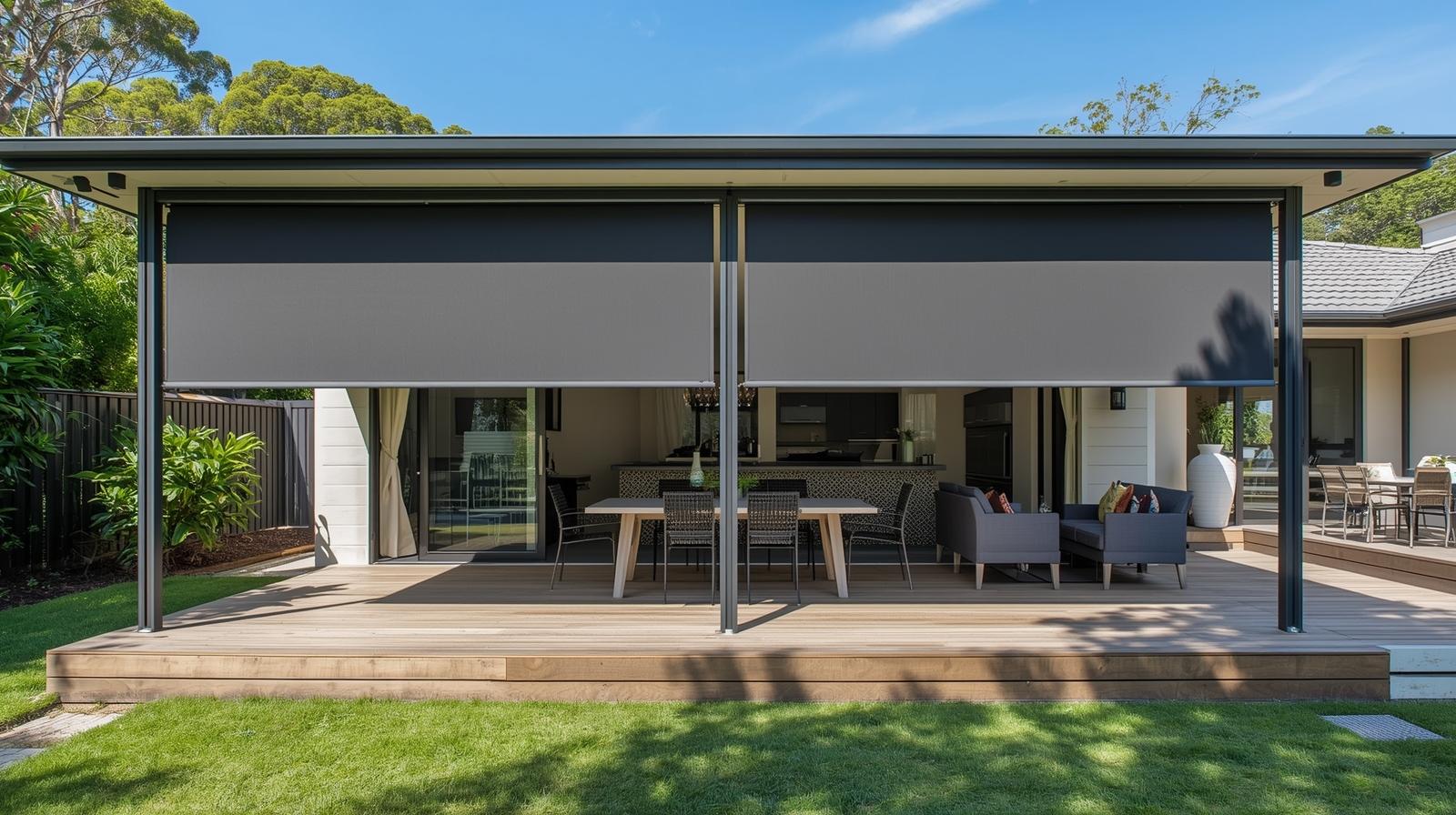
Blinds for Outdoors: Brisbane Buyer’s Guide to Year-Round Shade and Privacy
Blinds for outdoors turn exposed patios and balconies into comfortable outdoor rooms for Brisbane living by cutting heat and glare, adding privacy, and improving weather protection. This guide explains systems, fabrics, and motorisation so you can choose outdoor blinds that perform year-round and suit your home.
How outdoor blinds transform Brisbane living spaces
Outdoor blinds are purpose-built exterior systems designed to enclose or shield patios, decks, pergolas, and balconies. In Brisbane’s subtropical climate, they reduce heat and UV, tame glare on summer afternoons, add privacy from neighbouring lots, and help control wind, rain, and insects so you can entertain comfortably in every season.
Why outdoor blinds work in Brisbane
Blocking sun and wind outside the building envelope prevents heat gain at the source and makes alfresco areas usable longer each day. With the right fabric openness and hardware, outdoor blinds balance airflow, views, and privacy without feeling closed in.
Outdoor blind types and where each works best
Zip or side‑guided blinds run within side channels to limit gaps, resist wind, and keep insects at bay. They’re the go‑to for sealing alfresco areas into practical outdoor rooms. Straight drop systems are simple, versatile, and cost‑effective for shading wide spans, and are a solid choice for facades or semi‑sheltered patios. Wire or channel guide configurations provide a clean, architectural finish and keep fabric steady on upper-storey balconies. For dining zones that need visibility in rain, clear café‑style PVC panels maintain sightlines. Where overhead protection is the priority, awnings such as folding arm or fixed designs complement vertical blinds to complete the outdoor room.
Matching systems to spaces
Enclosing two or three sides of a patio with zip‑guided blinds offers privacy and weather control, while a complementary shade structure overhead finishes the space. For balcony privacy with wind exposure, wire guide or zip systems keep fabric stable.
For simple facade shade, straight drop designs remain a dependable option; explore our dedicated page on straight drop awnings for details.
Fabrics and materials explained for heat, privacy, and airflow
Fabric choice shapes everyday comfort. Woven mesh in the 95–99% UV block range reduces radiant heat and glare while keeping outward views. Tighter meshes improve privacy and wind resistance but reduce airflow slightly. Clear PVC protects from rain while preserving sightlines, though it retains more heat and requires careful handling to avoid creasing. Hardware should be durable, powder‑coated, and corrosion‑resistant—especially in bayside or coastal suburbs—to sustain long‑term performance and appearance.
Mesh vs PVC: choosing for comfort
Mesh excels for shade, airflow, and daytime privacy in most Brisbane settings. PVC is useful for rain and wind shielding in dining areas but needs diligent care and dry storage before rolling up.
Motorisation, sensors, and smart control options
Motorised blinds make daily use effortless and help protect your system when conditions change. One‑touch remotes, app, or voice control mean you’ll use the blinds more often and at the right times. Optional sun and wind sensors can deploy for heat control or retract automatically during gusts, extending lifespan and protecting fabric and hardware. On larger spans or upper levels, motorisation adds safety and convenience.
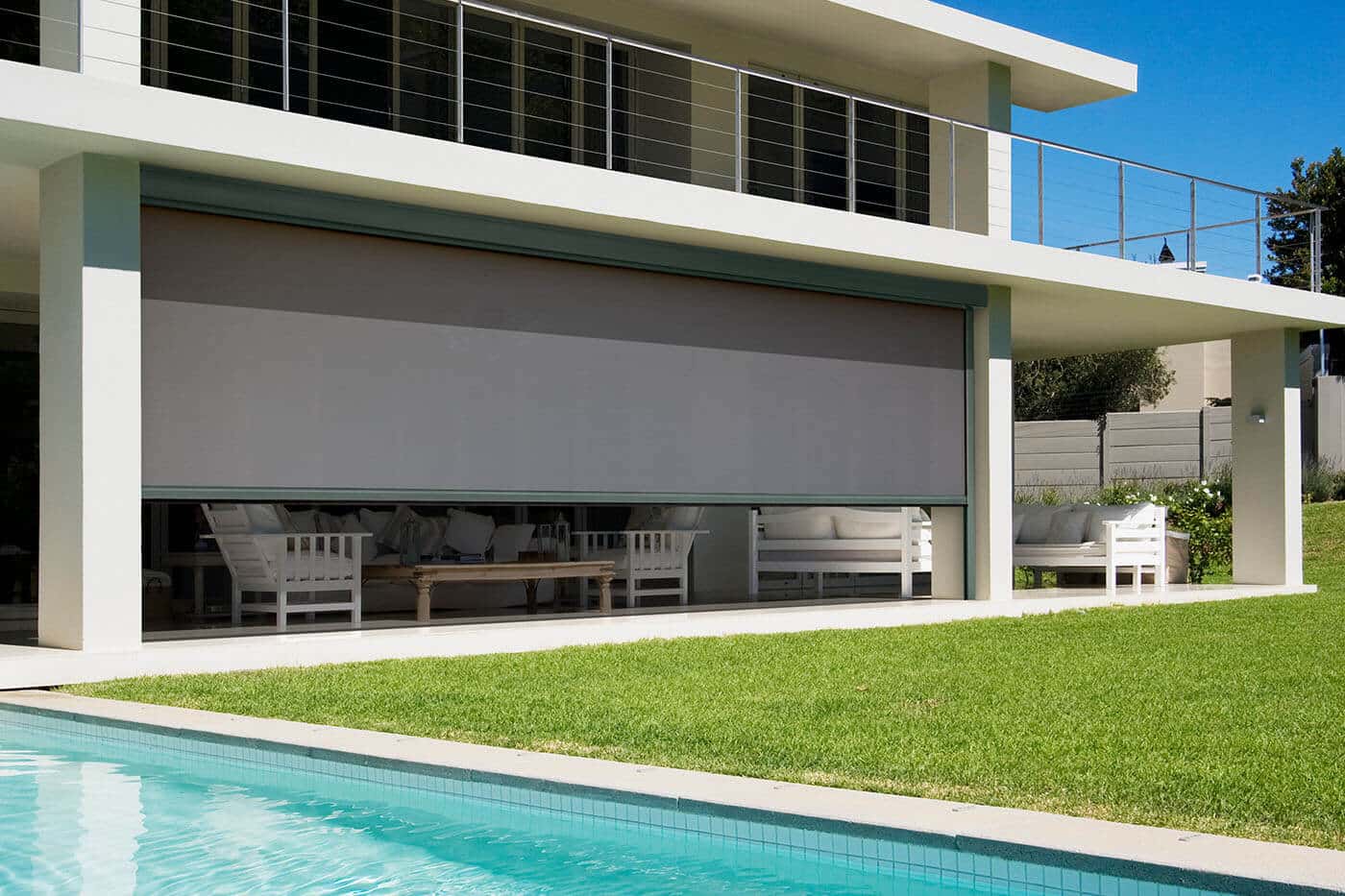
Smart use in Brisbane weather
Automations that close blinds before peak afternoon sun or retract during sudden summer storms help maintain comfort and protect your investment.
Sizing, mounting, and installation for patios, decks, and balconies
Accurate measurement and site‑specific design are essential. Consider headbox size and clearance, side channel alignment to posts or walls, and how the bottom bar meets the floor to limit light and insect ingress. Wide openings may need divided spans or intermediate posts to maintain tension and wind performance. Upper-storey installations benefit from side‑guided or wire‑guided stability and must be fixed into suitable substrates for safety and longevity.
Installation details that matter
Tidy alignment, correct fabric set, and minimal light gaps depend on professional installation. In‑house installers ensure quality control from measure to fit-off so blinds look seamless and operate smoothly.
Wind, weather, and durability in Brisbane’s climate
Brisbane’s summer storms, humidity, and coastal air demand robust systems. Choose side‑guided blinds with firm fabric retention, UV‑stable materials, and hardware engineered for wind.
While outdoor blinds add shelter, no fabric system is storm‑proof; prudent operation, timely retraction, and optional wind sensors preserve performance.
Bayside and coastal considerations
In bayside areas, regular fresh‑water rinses reduce salt build‑up on hardware. Selecting corrosion‑resistant finishes extends lifespan and keeps your installation looking new.
Costs, lead times, and how to budget
Project pricing varies with opening widths, system type, fabric, motorisation, fixing complexity, and finish. Side‑guided mesh blinds typically cost more than straight drop due to additional hardware, and automation adds convenience and value. Lead times are seasonal, with spring and early summer busiest; planning ahead ensures installation before peak heat. For a clear breakdown tailored to your space and budget, start with a free in‑home measure and quote.
Care, cleaning, and lifespan
Regular care keeps outdoor blinds looking sharp and operating smoothly. Rinse mesh with fresh water to remove dust and salt, allow it to dry fully, and avoid rolling when wet. Clean clear PVC only with approved products and store it dry to prevent clouding or creases. Operate blinds within intended wind limits and keep tracks/channels free of debris for smooth movement. With quality systems and proper maintenance, outdoor blinds deliver many years of reliable service.
Mesh and PVC care tips
Mesh prefers gentle rinses and air‑drying; PVC benefits from shade drying, soft cloths, and non‑abrasive cleaners to protect clarity.
Outdoor blinds vs awnings: which to choose?
Outdoor blinds control the vertical plane for privacy, wind, and insect protection. Awnings manage overhead sun and rain and reduce facade heat loads. Many Brisbane homes benefit from a coordinated approach—vertical blinds to enclose sides and elegant awnings for overhead shade—creating a comfortable outdoor room that works throughout the year.
How to choose the right solution for your home
Start with your outcome: a cooler alfresco, balcony privacy, or weather protection for an exposed deck. Match system type to exposure and span, pick the fabric openness that balances view and privacy, and decide on manual versus motorised operation. Bringing photos and rough measurements to your consultation accelerates feasibility checks and finish selection.
Local guidance you can trust
Since 1989, Complete Blinds Brisbane has helped homeowners across the city and surrounding suburbs design outdoor blinds that look seamless and perform in our climate—without using sub‑contractors—so you can rely on consistent quality from measure to install.
Frequently Asked Questions
What’s the difference between zip/side-guided and straight drop outdoor blinds?
Zip or side‑guided blinds run within side channels to help seal gaps, resist wind, and reduce insects. Straight drop blinds are simpler and cost‑effective for shade and privacy where wind sealing is less critical.
Are outdoor blinds waterproof?
Most mesh fabrics are water‑resistant and excellent for rain deflection with airflow. Clear PVC panels offer stronger rain protection but need careful care and drying before storing.
Do outdoor blinds reduce heat inside the home?
Yes. Shading the exterior stops solar gain at the source, lowering radiant heat and helping reduce air‑conditioning use, especially on west‑ and north‑facing areas.
Should I choose motorised or manual outdoor blinds?
Motorisation adds convenience, protects large spans, and enables sensor automation. Manual systems suit smaller spans or where budget and simple operation are priorities.
How long do outdoor blinds last in Brisbane conditions?
With quality components, correct installation, and regular cleaning, outdoor blinds can last many years. Coastal homes benefit from periodic fresh‑water rinses to preserve hardware.
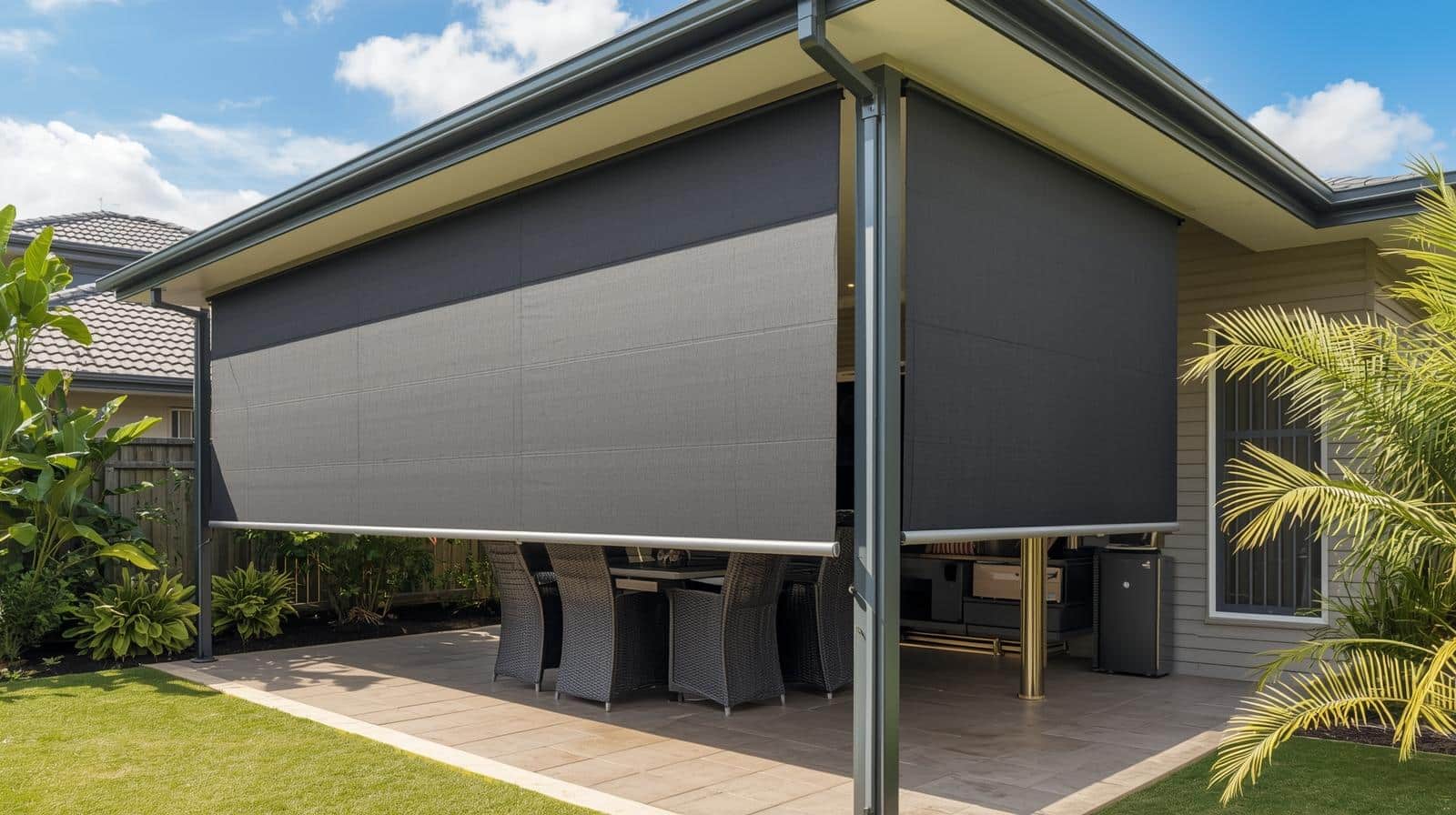
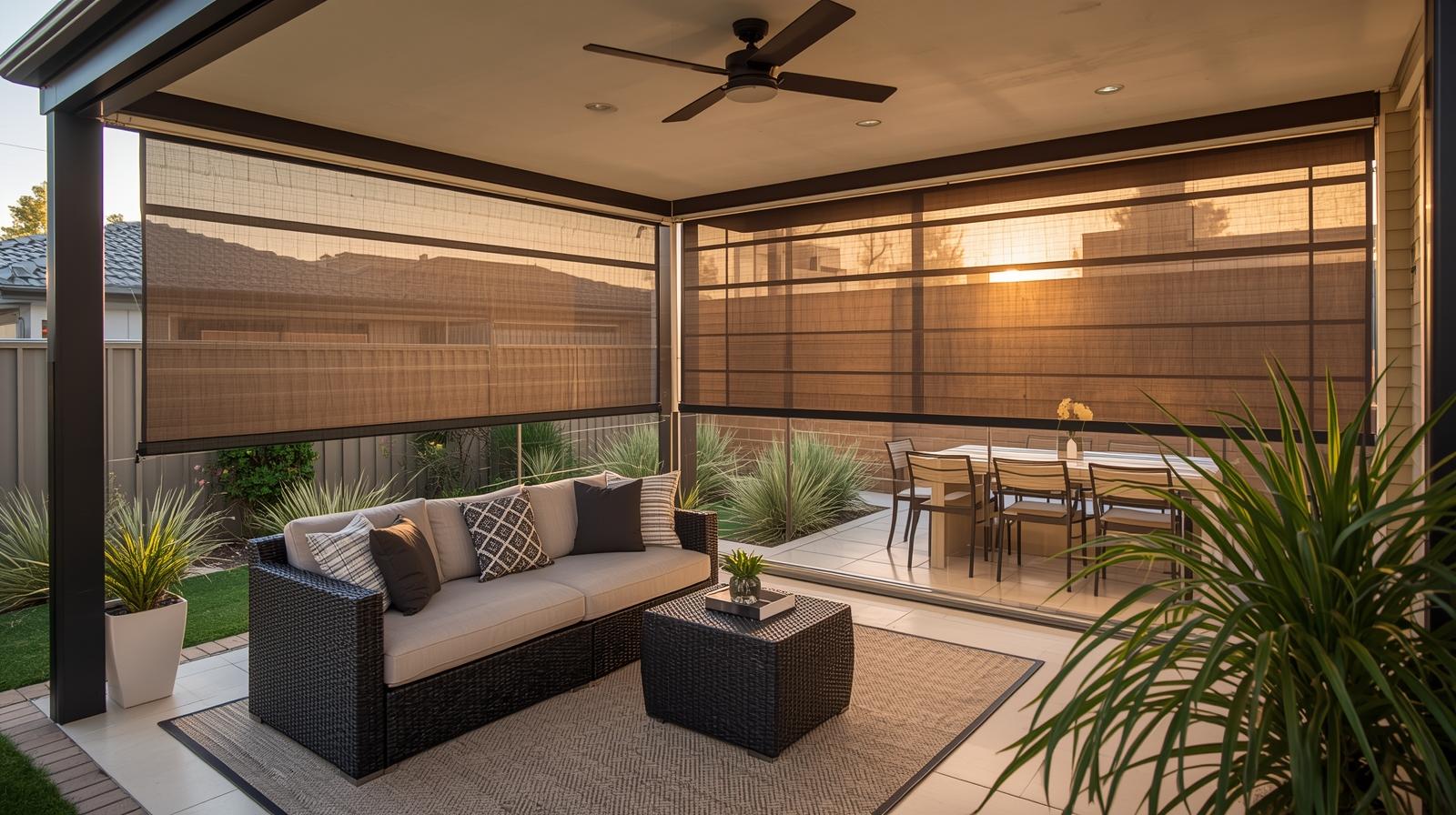
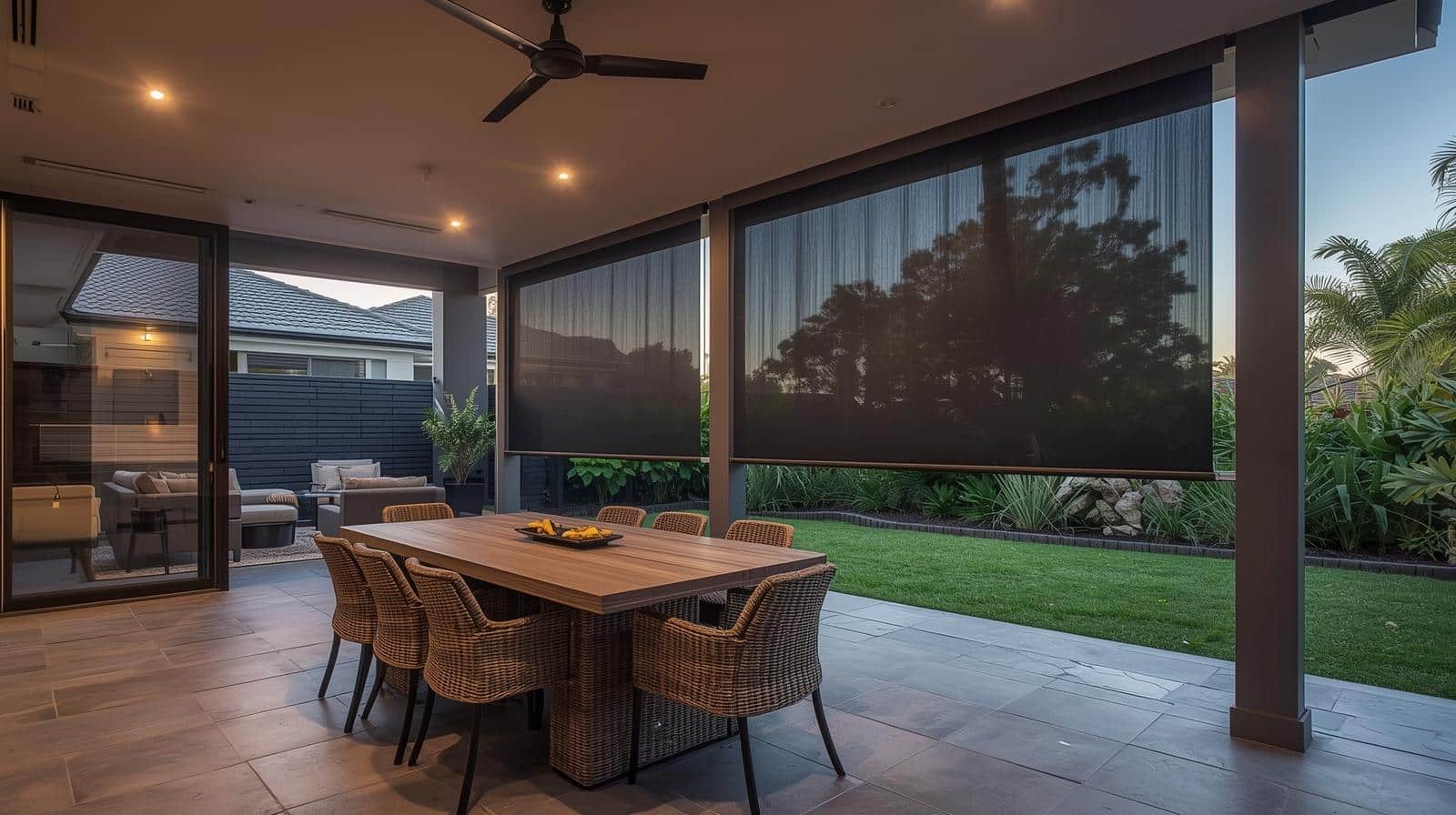
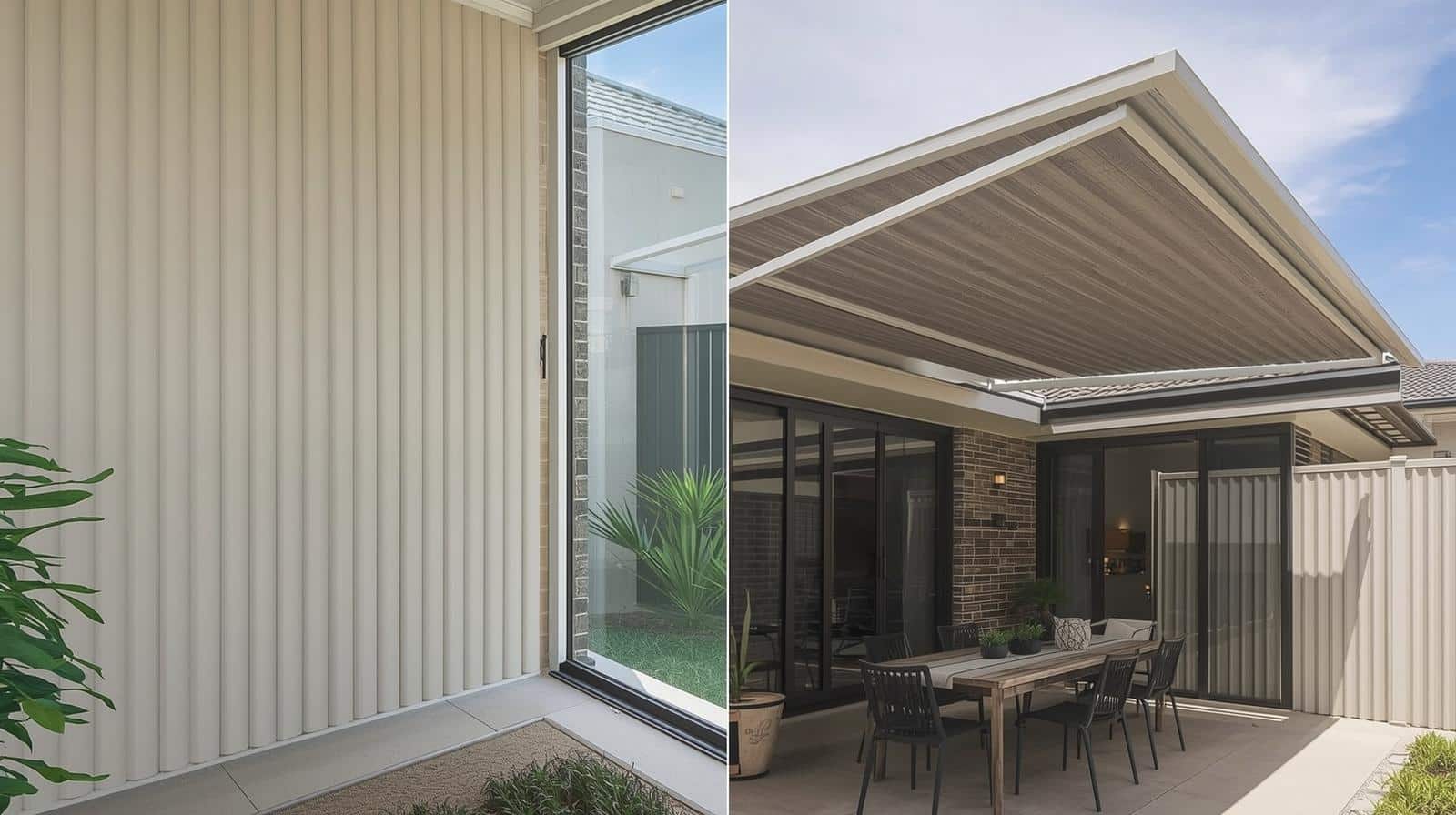
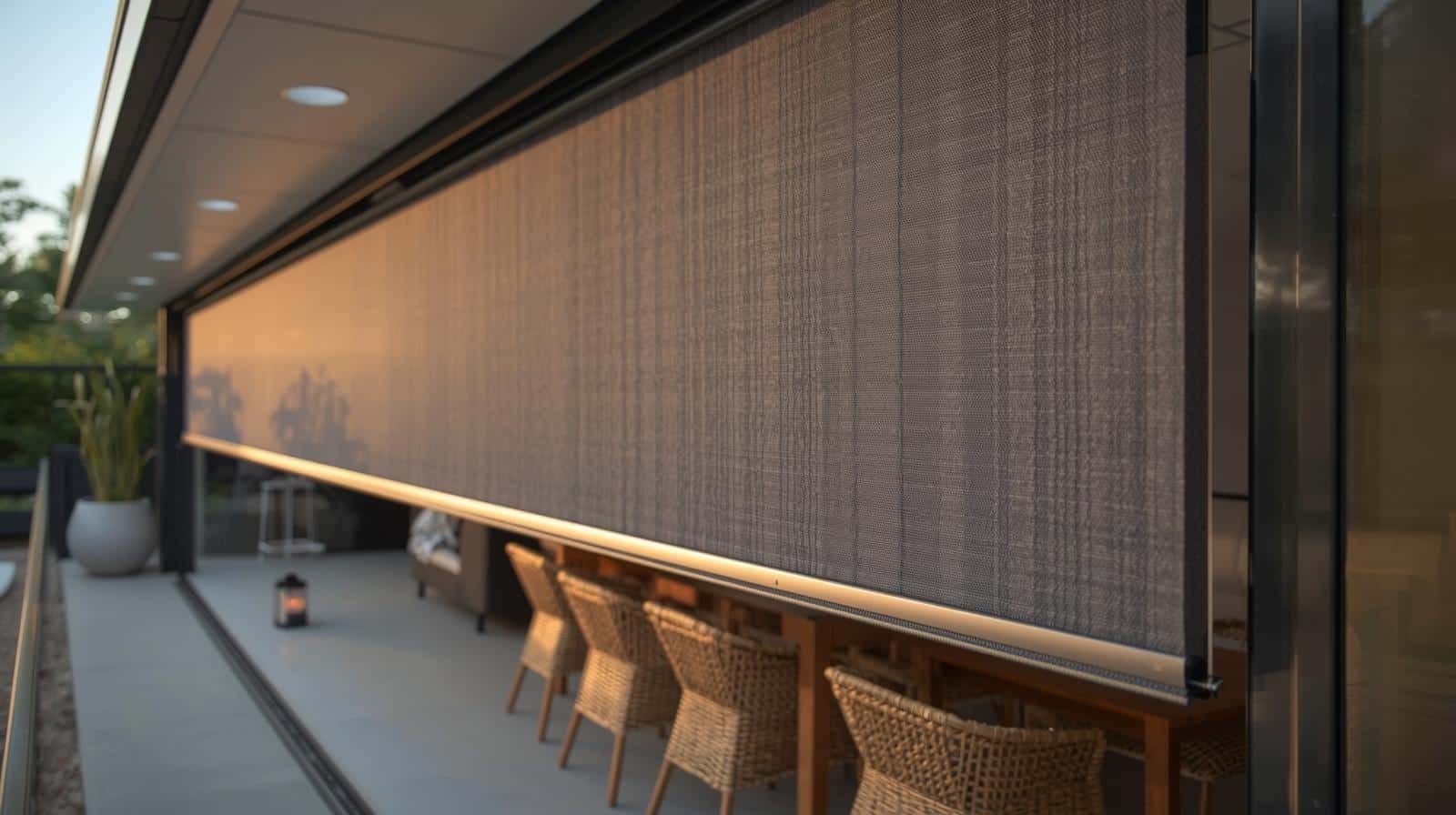


Comments (0)